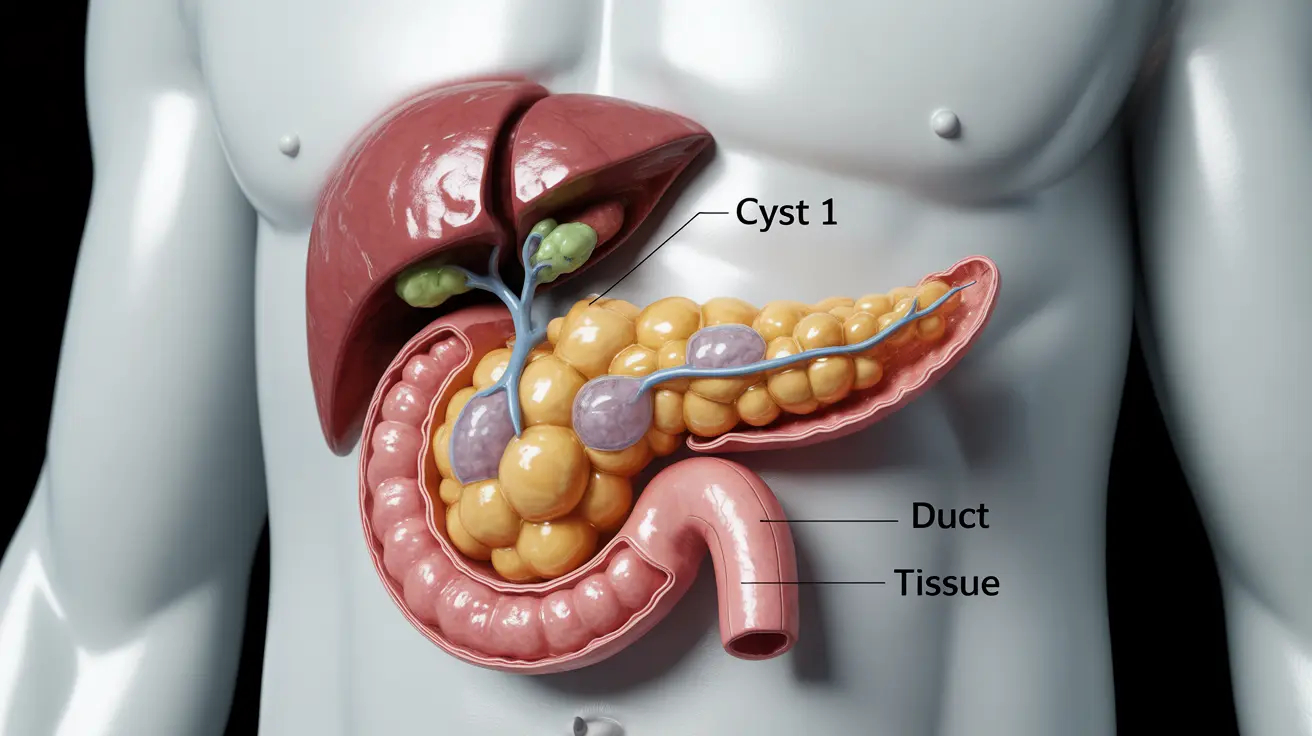Living with pancreatic cysts can be concerning, and many people seek natural approaches to managing their condition. While pancreatic cysts often require medical supervision, understanding potential natural management strategies alongside conventional medical care is important for overall pancreatic health.
This comprehensive guide explores evidence-based approaches to supporting pancreatic health naturally, while emphasizing the importance of proper medical monitoring and intervention when necessary.
Understanding Pancreatic Cysts
Pancreatic cysts are fluid-filled sacs that develop in or on the pancreas. These cysts can vary in size, type, and potential health implications. While some may be benign and remain stable, others require careful monitoring or medical intervention.
Natural Approaches to Supporting Pancreatic Health
Dietary Modifications
A healthy diet plays a crucial role in supporting pancreatic function and overall health. Consider incorporating these dietary practices:
- Low-fat, nutrient-rich foods
- Plenty of fresh fruits and vegetables
- Whole grains and lean proteins
- Adequate hydration with water
- Limited processed foods and refined sugars
Lifestyle Changes
Certain lifestyle modifications may help support pancreatic health:
- Regular moderate exercise
- Stress management techniques
- Maintaining a healthy weight
- Avoiding alcohol consumption
- Quitting smoking if applicable
Monitoring and Medical Supervision
While pursuing natural management strategies, regular medical monitoring remains essential. Your healthcare provider will determine the appropriate frequency of imaging and check-ups based on your specific situation.
Warning Signs to Watch For
Being aware of concerning symptoms is crucial. Seek immediate medical attention if you experience:
- Severe abdominal pain
- Persistent nausea or vomiting
- Unexplained weight loss
- Yellowing of skin or eyes
- Fever with abdominal pain
When Medical Intervention Is Necessary
Natural approaches should complement, not replace, medical care. Certain situations require immediate medical attention or surgical intervention, particularly when cysts:
- Show signs of growth
- Cause significant symptoms
- Display concerning features on imaging
- Have potential for malignancy
Frequently Asked Questions
Can pancreatic cysts shrink naturally with diet or lifestyle changes?
While some pancreatic cysts may stabilize or slightly decrease in size with healthy lifestyle changes, most cysts require medical monitoring. Natural approaches can support overall pancreatic health but shouldn't be relied upon as the sole treatment method.
What are the most effective natural methods to support pancreatic health?
The most effective natural methods include maintaining a low-fat, nutrient-rich diet, regular exercise, stress management, avoiding alcohol, and maintaining a healthy weight. These approaches should be implemented alongside proper medical supervision.
How often should pancreatic cysts be monitored through medical imaging?
The frequency of monitoring depends on the cyst's size, type, and characteristics. Typically, healthcare providers recommend imaging every 6-12 months, though some cases may require more frequent monitoring.
When is surgery necessary for treating pancreatic cysts instead of watchful waiting?
Surgery becomes necessary when cysts show concerning features like rapid growth, potential for malignancy, or cause significant symptoms. Your healthcare provider will evaluate factors such as size, location, and specific characteristics to determine if surgical intervention is needed.
What symptoms indicate a pancreatic cyst needs immediate medical attention?
Seek immediate medical attention if you experience severe abdominal pain, persistent nausea or vomiting, unexplained weight loss, jaundice (yellowing of skin/eyes), or fever with abdominal pain. These symptoms may indicate complications requiring urgent evaluation.




